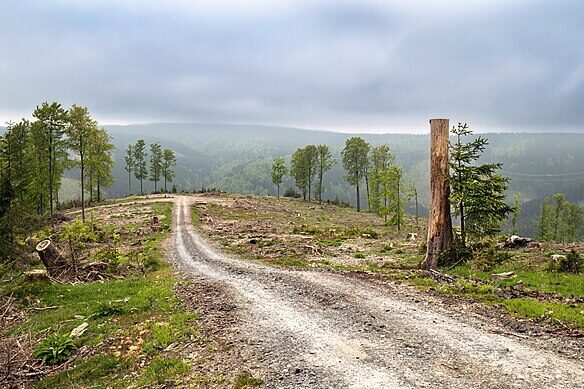
Deforestation has caused more than half a million deaths in tropical regions over the past two decades through heat-related illness, according to a new study.
The clearance of forests is driving up temperatures in the Amazon, Congo and south-east Asia by reducing shade, suppressing rainfall and increasing the risk of fire, the study found.
Deforestation was responsible for over a third of the warming experienced by communities in these regions, adding to the wider impacts of global climate breakdown.
Between 2001 and 2020, an estimated 345 million people across the tropics were affected by this localised warming. For 2.6 million of them, heat exposure rose by as much as 3C.
In many cases, this proved fatal. The researchers calculated that deforestation-driven warming caused an average of 28,330 deaths per year during the 20-year period. More than half of these deaths occurred in south-east Asia, where dense populations and high levels of heat vulnerability made people especially at risk. Around a third were in tropical Africa, with the rest in Central and South America.
The study, published in the journal Nature Climate Change, was conducted by scientists in Brazil, Ghana and the UK, who analysed links between temperature changes from tropical land clearance and non-accidental mortality rates.
Previous research has shown that tree felling and burning cause long-lasting regional heating, but this is the first study to quantify the resulting human death toll.
Professor Dominick Spracklen of the University of Leeds, a co-author of the paper, said the central message was that “deforestation kills”. He added that many people would likely be shocked by the findings, as the local risks of deforestation are often overshadowed by debates on global climate change and the market-driven expansion of agricultural frontiers.
He highlighted Mato Grosso in Brazil as an example, where vast areas of forest have been cleared for soya bean plantations. Farmers from the region are now campaigning for an end to the Amazon soy moratorium to enable further deforestation.
Spracklen stressed that protecting the forest canopy would not only save lives but also improve agricultural yields.
“If Mato Grosso can keep its forests standing, people there will experience less heat stress,” he said. “This isn’t just the west urging forest protection for the sake of the global climate. The forests directly benefit local communities. They regulate temperature, bring rainfall, and support the agriculture people depend on. These forests aren’t idle – they’re working really hard and doing something really important for us.”
——————————————————————————
At Natural World Fund, we are passionate about restoring habitats in the UK to halt the decline in our wildlife.

